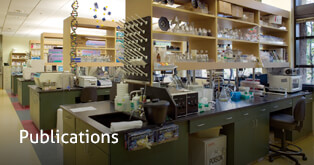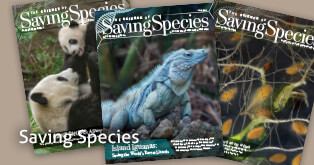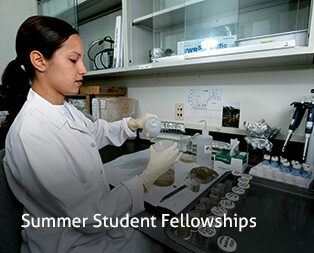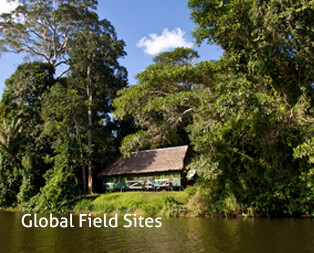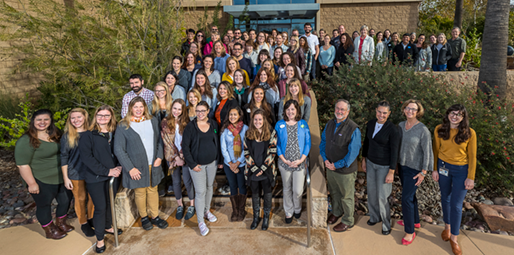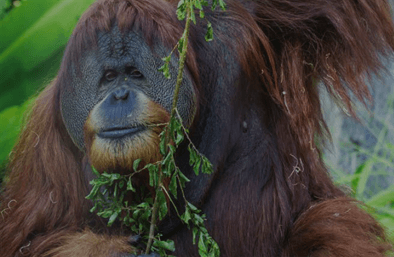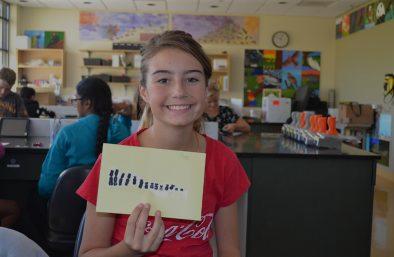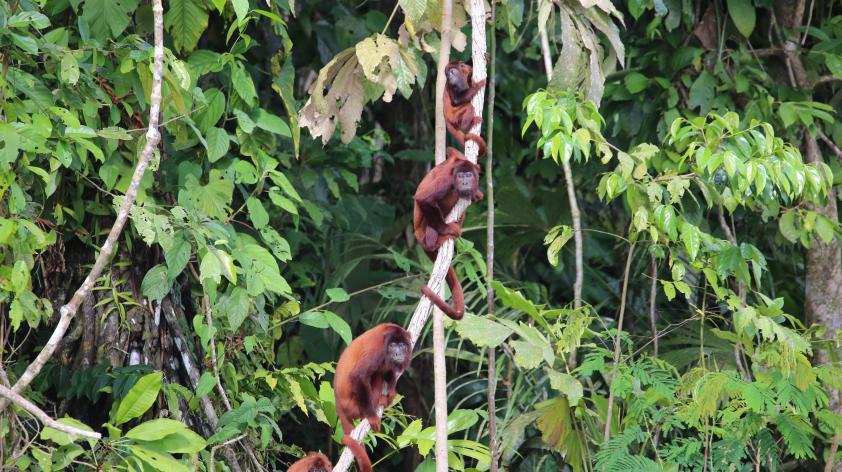
Cocha Cashu Biological Station: Changing life trajectories
Meet Claudia Sofía Salazar Avíla, Nicole Abanto Valladares, and Maribel Monica Toco Huallpa. Let’s stick with first names. They are the future of conservation science in Perú. One reason their future is so bright—and their pathway so clearly defined—is the Cocha Cashu Biological Station.
Between 2014 and 2016 all three of these bright young female students participated in our intensive field course offered to Peruvian college students. Taught by our own staff and leading tropical ecologists from around the globe, ten lucky students each year immerse themselves deep in the nature and science that only a place like Cashu can provide.
Upon arriving at Cashu, I was pleased to discover that three course alumni (so-called “Cashu nuts”) had returned, with the support of the Station or other investigators, to continue to pursue their passion and their curiosity. They are all pursuing their interests in primates, with Nicole and Claudia here to study spider and woolly monkeys and Maribel here to work with titi monkeys. I seized the opportunity to ask them why they came back and what the course has meant to them in their life so far. The answers I got were incredibly revealing.
All of them said they had never experienced anything like this before, and that they loved the challenge of adapting to a new lifestyle and learning new things. Says Nicole: “it changed almost everything I had in my mind about science and research…it was very different from the education I received back in school.” She arrived uncertain, perhaps naïve, about how science works and how she might want to use it in her career, but she left with a strong feeling of, “Hey! I can do this!”
All of them also spoke about the instructors, and the incredible opportunities for mentorship that they experienced. They emphasized the instructors’ passion and their knowledge so willingly shared, as well as the diversity represented, with instructors and guest instructors from both Perú and the international community. None mentioned it, but I wondered how instrumental it was that several instructors were women, and two of them were Peruvian women. We want to promote women in science and Peruvians in science, so it seems wise to include some good role models.
Of course the exposure to nature at Cashu is second to none. Maribel, a primate lover, was so amazed by all the other animals and plants, and Cashu opened up her eyes to the incredible diversity of life of the tropical rainforest. Now, she notices much more than just the monkeys, and sees the myriad interactions between the many life forms, i.e., “ecology”. Cashu “brought all the nature to life.”
Did Cashu change their life trajectories? Of course, they were already interested in nature and ecology or they would not have applied to the course in the first place. But across the board, their experience strengthened their resolve and gave them a much clearer picture of what they wanted to do with their life, and the steps necessary to get there.
Claudia said that when she arrived, she lacked confidence, and she was afraid ”of the forest and of doing my own research.” Like one of the instructors told Nicole, “It’s always hard to be a beginner.” By the end of the course, Claudia was comfortable, not just with the forest “but with myself.” She speaks of her life as a river flowing, and she has been caught in Cashu’s flow and joined that river. Maribel voiced an “awakening of my curiosity” and claims that “Cashu brought me back to ‘the way’”. As Nicole observed, “Now I know this life, this career, is worth struggling for.” And she knows she will have to work hard to get it.
Cashu left its mark on these young emerging scientists. As Maribel said, “Even when I’m home, I’m dreaming of the forest of Cashu.”
I’d like to end on a particularly pertinent quote from Claudia: “I’ve never been so free to think about science! You can ask any question you want!”
I am pleased that we have provided that freedom to four groups of students, and are excited to see how all of them exercise this freedom. As much as I hope to see them continue returning to Cashu, I also look forward to seeing them fledge and fly off to do great things elsewhere.
We would like to express our heartfelt gratitude to the Wallace Research Foundation, the Condon family, and other generous donors that make this course possible.

